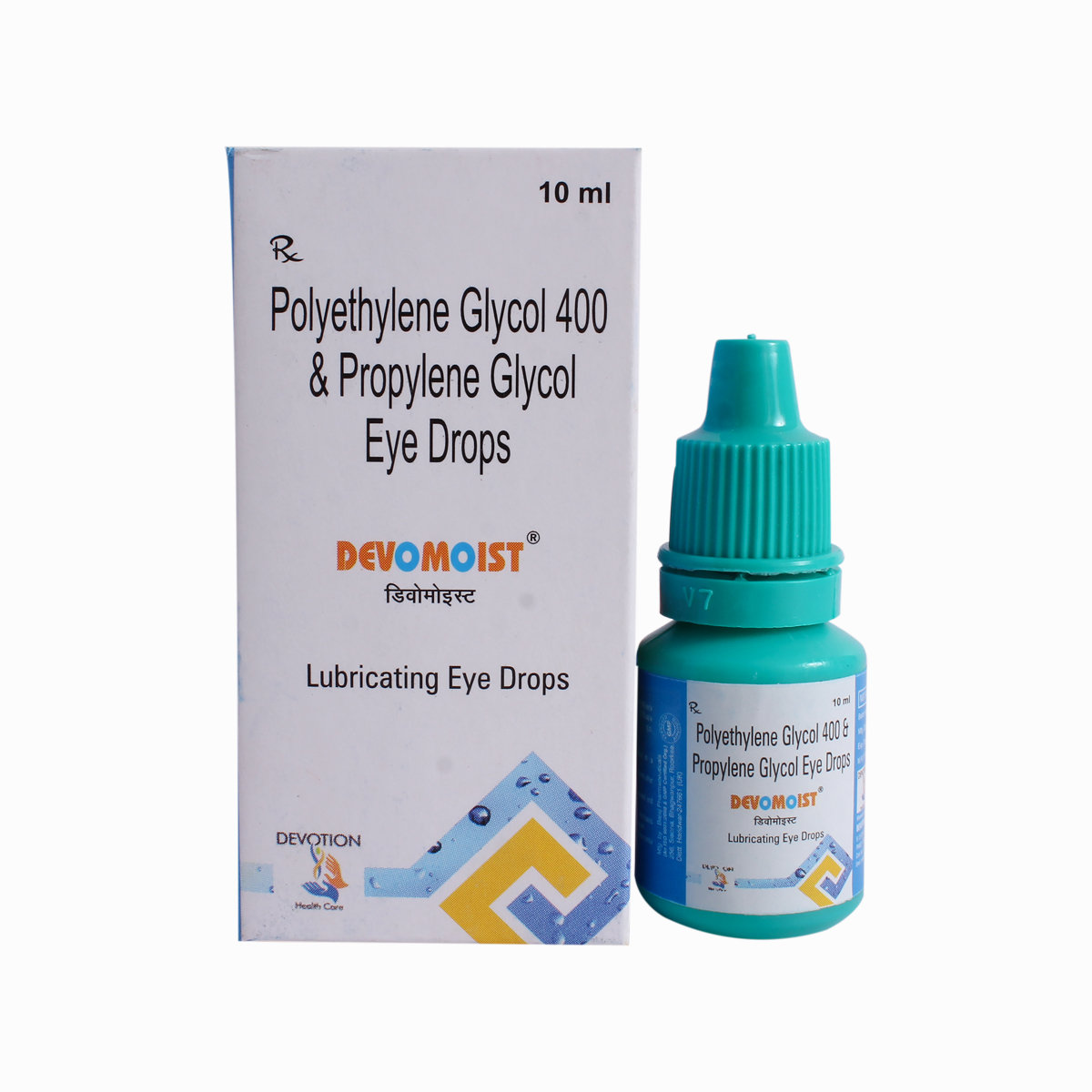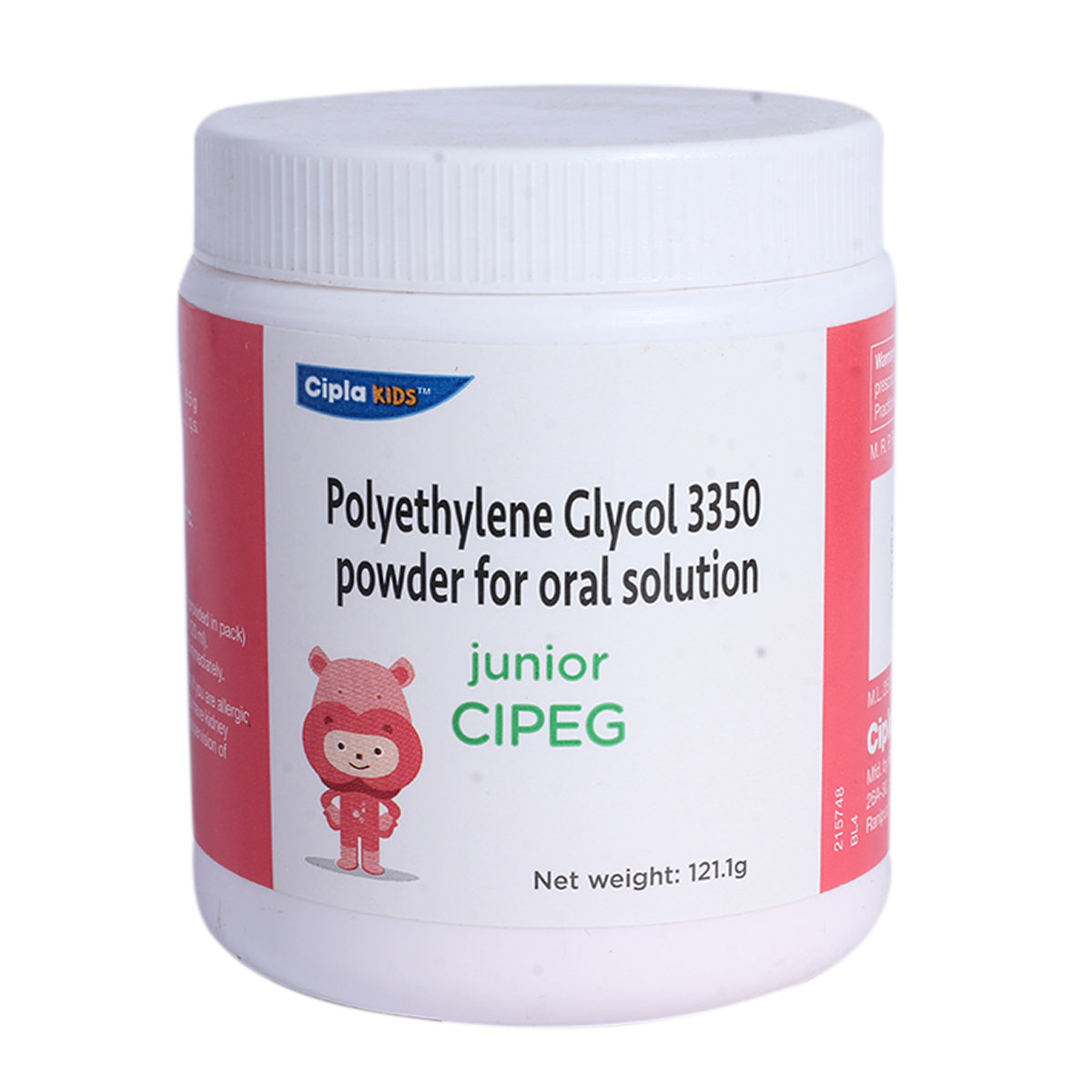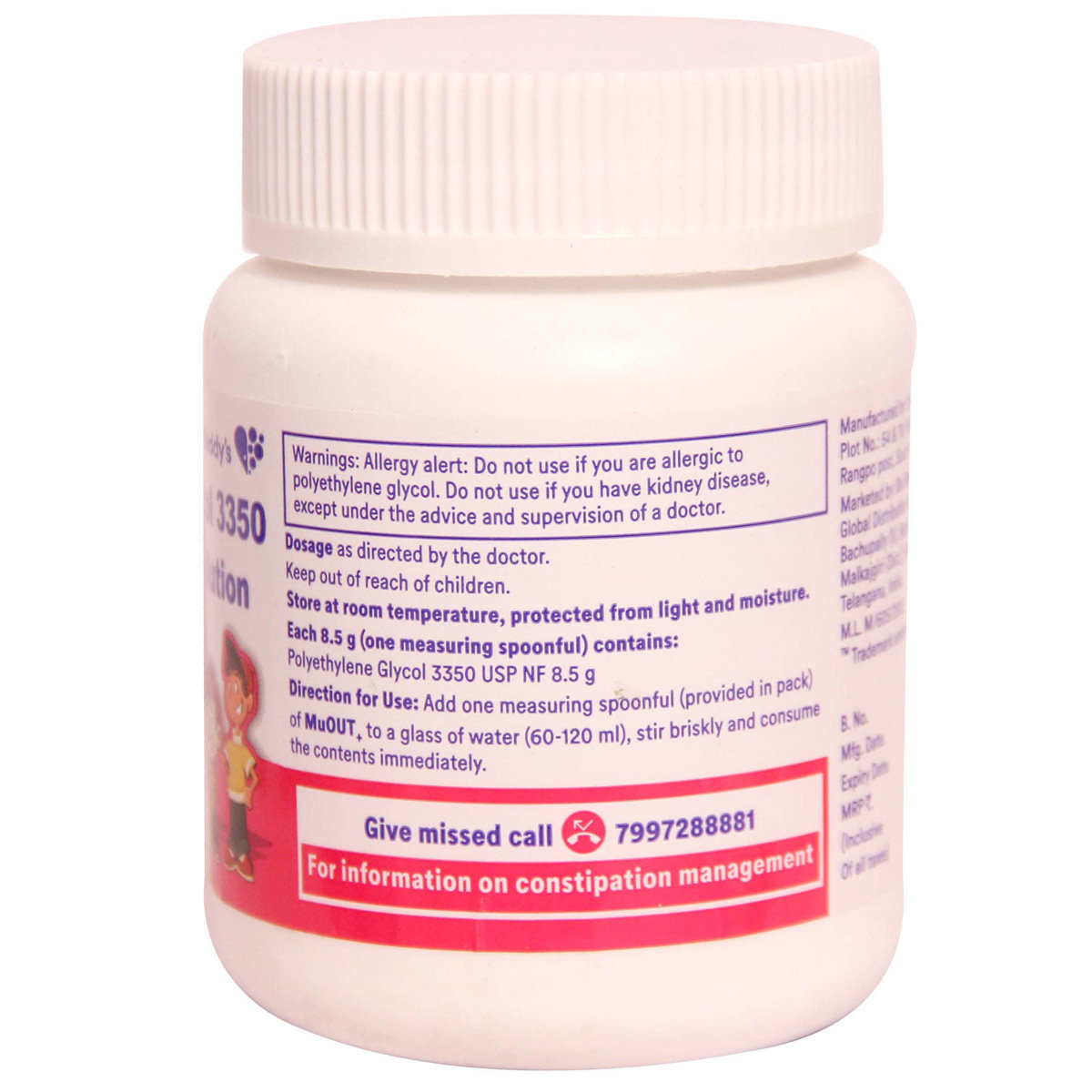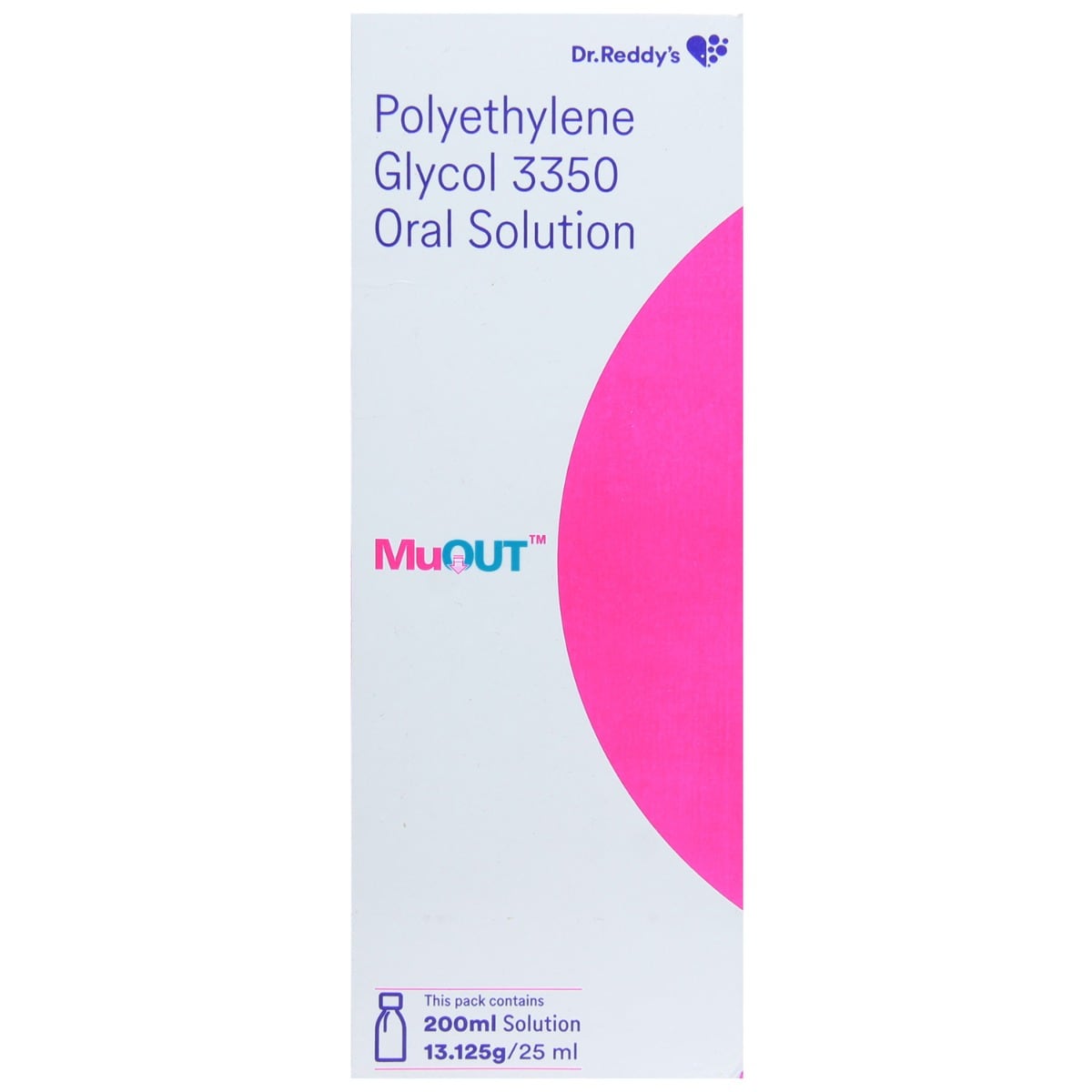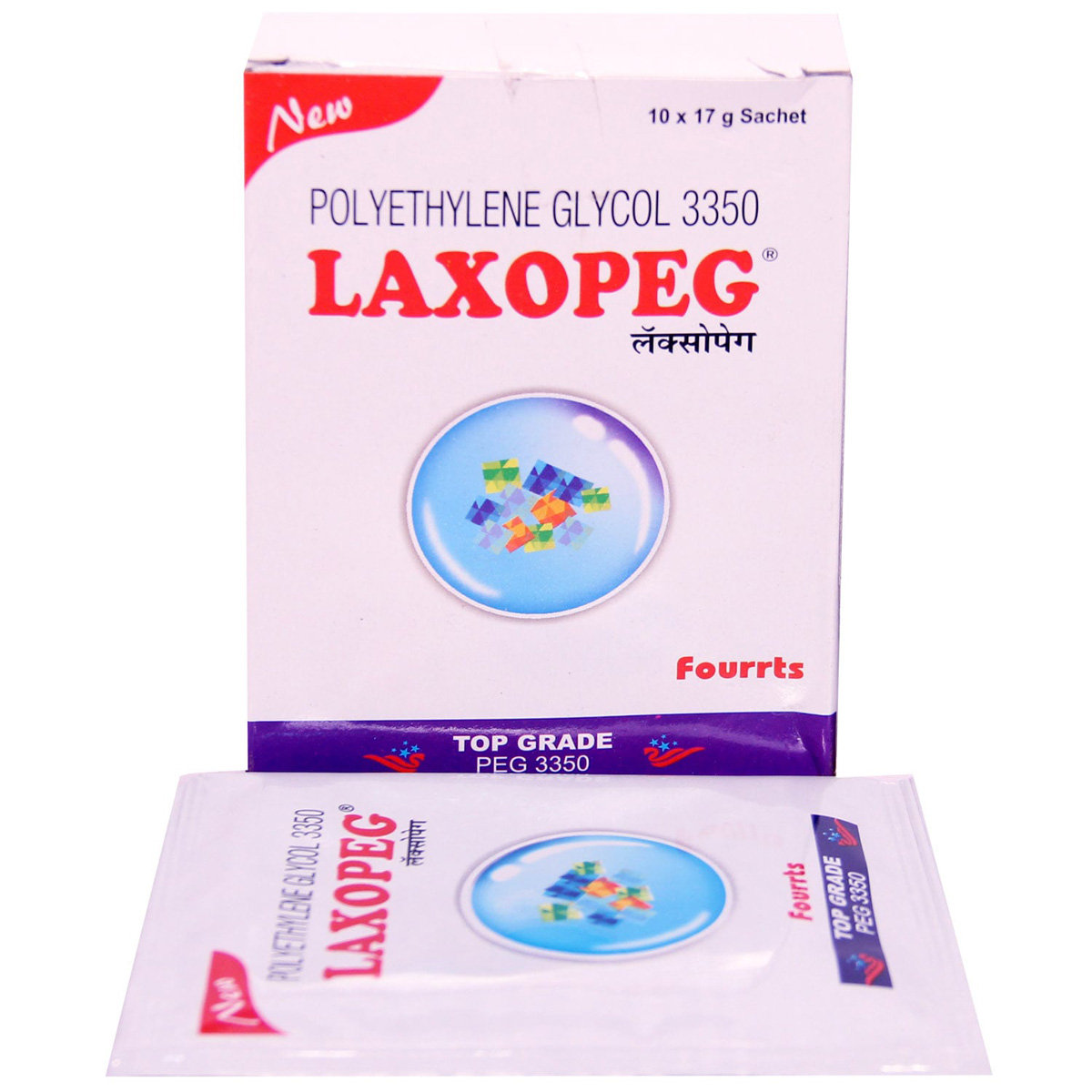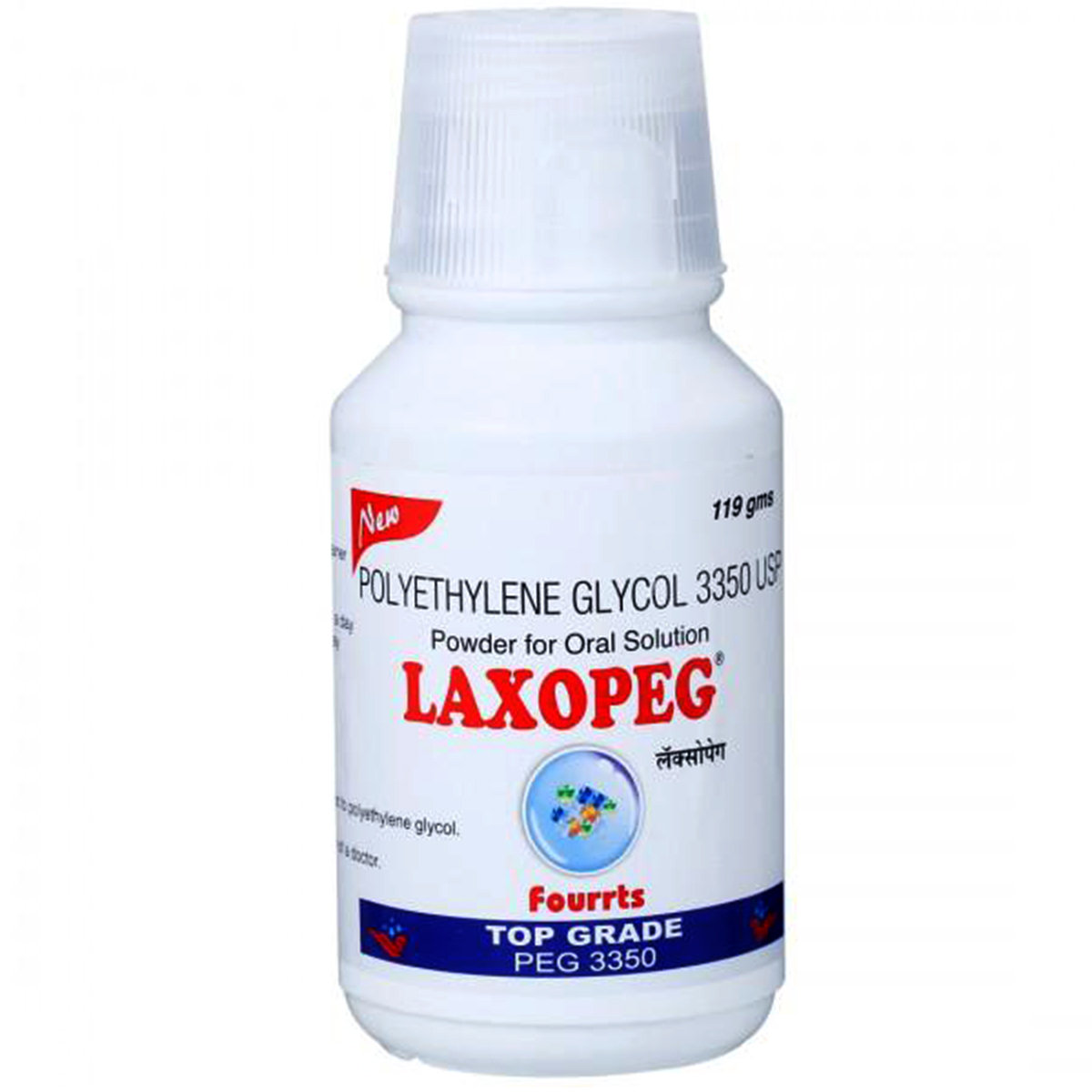Polyethylene Glycol
About Polyethylene Glycol
Polyethylene Glycol belongs to the group of medicines called osmotic laxatives used to treat occasional constipation. Constipation refers to infrequent bowel movements in which the stools are often dry, hard and painful to pass. Constipation occurs when the normal muscle contractions in the large intestine slow down, which causes the incomplete elimination of stools from the body.
Polyethylene Glycol contains ‘Polyethylene glycol’, which causes the water to retain in the stools, thereby stimulating bowel movement. It increases the number of bowel movements, softens the stools and makes it easier to pass. Thereby, Polyethylene Glycol helps in providing relief from constipation.
Take Polyethylene Glycol as advised. In some cases, you may experience certain common side-effects such as bloating, gas, nausea, and abdominal pain/cramps. Most of these side effects do not require medical attention and will resolve gradually over time. However, you are advised to talk to your doctor if you experience these side effects persistently.
Consult a doctor before giving Polyethylene Glycol to children. Do not take Polyethylene Glycol for more than a week as it might cause dependency on Polyethylene Glycol for a bowel movement. Talk to your doctor if you notice any sudden changes in bowel habits that persist for over two weeks. Consult your doctor before taking Polyethylene Glycol if you are pregnant or breastfeeding.
Uses of Polyethylene Glycol
Medicinal Benefits
Polyethylene Glycol belongs to the group of medicines called osmotic laxatives used to treat occasional constipation. Polyethylene Glycol causes the water to retain in the stools, thereby stimulates bowel movement. It increases the number of bowel movements, softens the stools and makes it easier to pass. Thereby, Polyethylene Glycol helps in providing relief from constipation.
Directions for Use
Storage
Side Effects of Polyethylene Glycol
- Abdominal pain/cramps
- Bloating
- Gas
- Nausea
Drug Warnings
Do not take Polyethylene Glycol if you are allergic to any of its components. Inform your doctor if you have a bowel obstruction, irritable bowel syndrome, anorexia, or kidney disease. Consult a doctor before giving Polyethylene Glycol to children. Do not take Polyethylene Glycol for more than a week as it might cause dependency on Polyethylene Glycol for a bowel movement; talk to your doctor if constipation lasts for more than a week. Consult your doctor if you are pregnant or breastfeeding. Stop using Polyethylene Glycol and consult a doctor if you have severe diarrhoea, rectal bleeding, bloody stools, or if the side effects (nausea, abdominal cramps, bloating) get worse, as those might be an indication of a serious condition. Talk to your doctor if you notice any sudden changes in bowel habits that persist for over two weeks.
Drug Interactions
Drug-Drug Interactions: Polyethylene Glycol may interact with diuretics (furosemide) and bronchodilator (albuterol).
Drug-Food Interactions: No interactions found/established.
Drug-Disease Interactions: Inform your doctor if you have a bowel obstruction, inflammatory bowel syndrome, intestinal obstruction disorder, GI obstruction/perforation, anorexia, or kidney disease.
Drug-Drug Interactions Checker List:
Safety Advice

Alcohol
cautionIt is not known if alcohol interacts with Polyethylene Glycol. Please consult your doctor if you have any concerns regarding this.

Pregnancy
cautionPolyethylene Glycol belongs to pregnancy category C. Please consult your doctor if you are pregnant; your doctor will recommend Polyethylene Glycol if the benefits outweigh the risks.

Breast Feeding
cautionConsult your doctor if you are breastfeeding. Your doctor will decide if Polyethylene Glycol can be taken by breastfeeding mothers or not.

Driving
cautionPolyethylene Glycol is unlikely to affect your ability to drive. However, drive only if you are alert.

Liver
cautionPlease consult your doctor if you have liver impairment/liver disease.

Kidney
cautionPlease consult your doctor if you have kidney impairment/kidney disease.

Children
cautionPolyethylene Glycol should be given to children only if advised by the doctor.
Habit Forming
Diet & Lifestyle Advise
- Try maintaining a balanced diet that includes fresh fruits and vegetables.
- Stay hydrated, and drink enough water and fluids.
- Exercise regularly and stay fit.
- Get enough sleep.
- Try making time to empty your bowels whenever the body tells you to.
- Eat food rich in fibre, such as whole-wheat bread, oatmeal, flaxseed, nuts, beans, lentils, fruits (berries, apples, oranges, bananas, pears, figs) and vegetables (broccoli, spinach, sweet potatoes, avocados).
Special Advise
- Polyethylene Glycol might be habit-forming. Therefore, do not take larger doses or for a longer duration than recommended by the doctor.
Patients Concern
Disease/Condition Glossary
Constipation: It refers to infrequent bowel movements. The stools are often dry, painful and hard to pass. Constipation is a condition in which the person has fewer than three bowel movements in a week. However, bowel patterns may vary from person to person. Symptoms include bloating, abdominal pain, and feeling as if the bowel movement is incomplete. Constipation occurs when the muscle contractions in the large intestine slow down, which causes the incomplete elimination of stools from the body. Constipation could be associated with a sudden change of diet, a diet with less fibre, not drinking enough liquids, lack of exercise, loss of tone of the bowel muscles in older people, or having to stay in bed for a longer duration.
FAQs
Polyethylene Glycol causes the water to retain in the stools, thereby stimulates bowel movement. It increases the number of bowel movements, softens the stools and makes it easier to pass. Thereby, Polyethylene Glycol helps in providing relief from constipation.
Polyethylene Glycol usually produces a bowel movement in 1-3days. Polyethylene Glycol might cause loose, watery and more frequent stools.
Diarrhoea might occur if Polyethylene Glycol is taken in larger doses. Drink lots of fluids and eat food rich in fibre if you experience diarrhoea. Stop using Polyethylene Glycol and consult your doctor if you experience severe diarrhoea or if you find blood in stools.
Do not take Polyethylene Glycol for more than a week as it might lead to dependency on Polyethylene Glycol for a bowel movement. Consult your doctor if your bowel movement is irregular even after taking Polyethylene Glycol for a week or if you notice a change in bowel habits that last for more than 2 weeks.
Drink plenty of fluids and consume fibre-rich food, whole-grain bread, unprocessed bran, fruits and vegetables. Try to exercise regularly.


